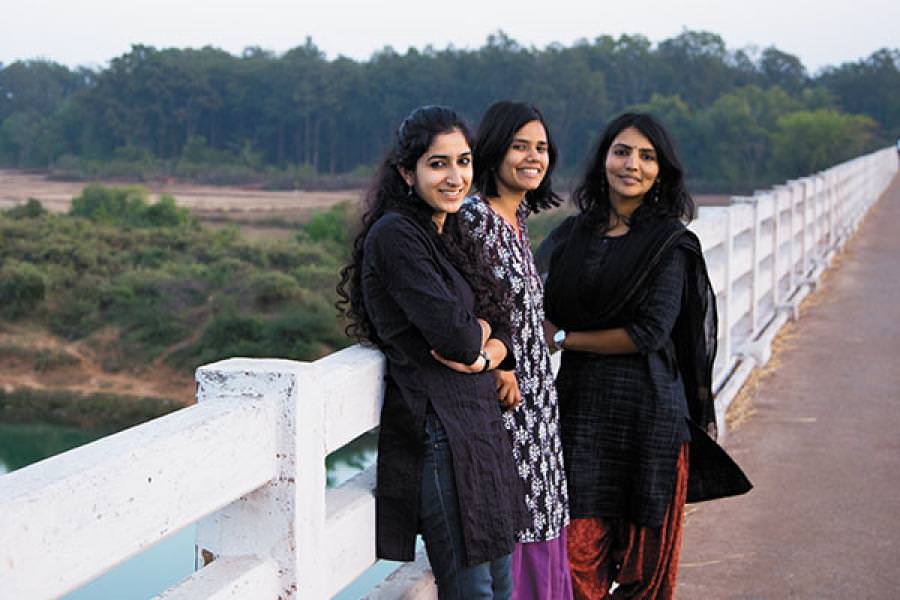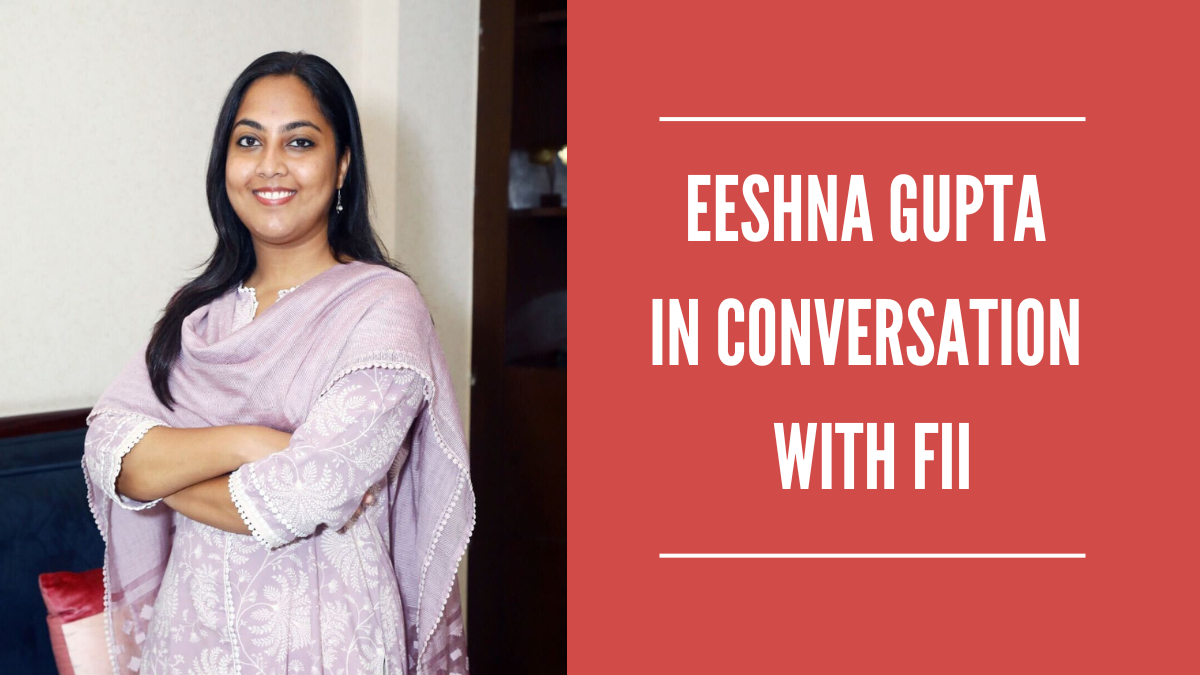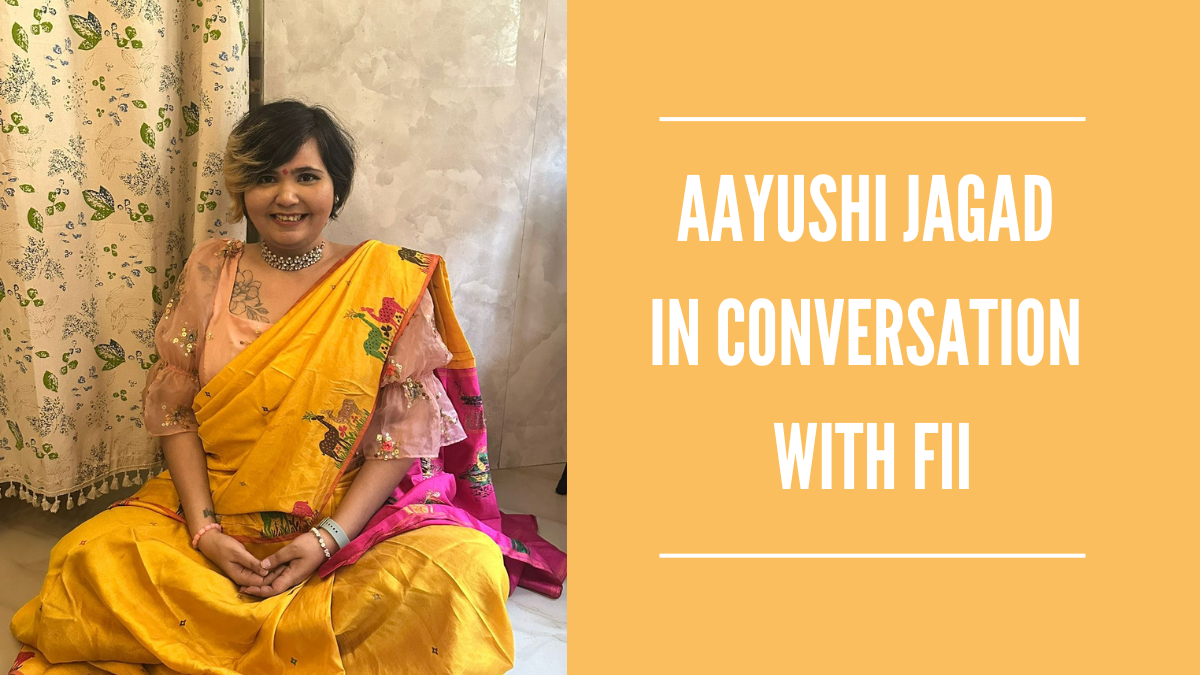In this series, Women In Power, we feature women who have done groundbreaking work in the field of gender, sexuality, women’s rights and the likes to get an insight into their lives and their work. More and more people are joining the feminist movement and working on gender and we wish to bring them in the limelight, one life at a time.
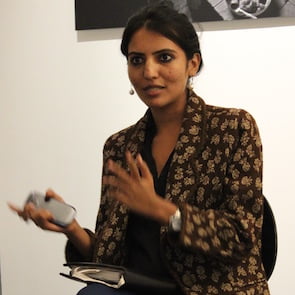
Isha Khandelwal of the Jagdapur Lega Aid Group
Soni Sori’s arrest in 2011 and the revelations of custodial violence being meted out towards those arrested on charges of being ‘Maoists’ by the authorities triggered an increased curiosity around the situation in Chattisgarh, particularly the conditions of the adivasis and the violence being committed against them by the State authorities. The incident also served as a catalyst for the setting up of an organisation solely dedicated to the cause of justice for the locals and led to the setting up of the Jagdalpur Legal Aid Group (JagLAG), a non-profit organisation providing legal services in Bastar, Dantewada, Kanker, Sukma, and Bijapur. JagLAG was set up in 2013 by four women; Shalini Gera, Isha Khandelwal, Parijata Bhardwaj and Rupesh.
Femnism in India spoke to Isha Khandelwal, a graduate from the Faculty of Law, University of Delhi, a human rights lawyer and co-founder of JagLAG. In this interview, she talks about moving to Chattisgarh in 2013 and all that has followed, including her group’s ouster from Bastar in February, 2016, highlighting the impact the situation has had on the lives of women in the conflict torn area.
Q1. Let’s start with JagLAG and how you came to be associated with it.
My colleague Shalini and I were in law school together and all of this sort of came around in our final year. Shalini had been working in Chattisgarh in different ways. This was at the time of Soni Sori’s arrest and Shalini had been associated with the case through Human Rights Law Network. The situation in Chattisgarh was coming to be noticed and there was a lot of conversation surrounding Chattisgarh, Bastar, in particular. The civil society groups in Delhi were already engaged in Bastar but there was a need to have a dedicated team working from Bastar itself, to know the intricacies of the conflict. So a group of us, three lawyers and a social worker, decided to be the ones and formed that team.
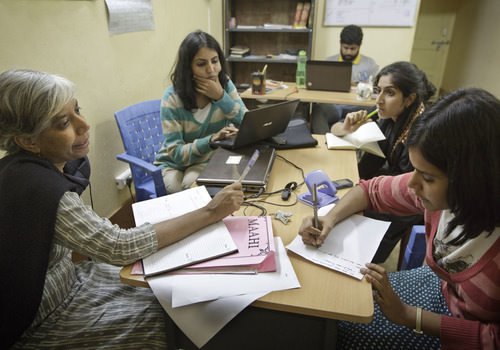
L-R: Shalini Gera, Isha Khandelwal, Guneet Kaur and Parijata Bhardwaj. Image Source: Bar & Bench
Q2. Everyone is a little wary of people from the outside. Was it difficult to approach the locals and engage with them?
We didn’t really go with a plan of action, Soni’s arrest had only revealed the worsening situation of Bastar with overcrowding in prisons and fabrication of cases coming to be noticed and spoken about more openly. Our main emphasis, at first go, was to collect data and access information by way of RTI applications, which we didn’t have too much trouble with. The locals, of course, had their reservations, but once we started delving into the under trial situation, more and more people came to trust us. We were already handling Soni’s case so that also helped us gain the confidence of those imprisoned. It is through her that we got involved with more under trials and within a year our workload significantly increased and we took up regular trial cases.
Q3. What about your experience initially in terms of work and dealing with the authorities?
The situation in the jails of Bastar is dismal. They are the most overcrowded prisons in the country with people being held up for years without any case against them. The rate of acquittal is over 95% but by the time these people are acquitted, there is nothing left to go back to. The families, who have not visited them for years owing to the cost of travelling such distances, they have moved on, husbands of women prisoners have remarried. In fact, there is no need to impose sentence on these people whose lives the system has already destroyed by keeping them in custody for so long, without there being any case against them. Which is why, we chose to focus on these cases first and as long as we were doing that, there was no trouble. It was only when we took up our first court case about an incident in 2012 when the security forces had killed 17 villagers including 7 minors from 3 villages during an ongoing village festival meeting, that we witnessed the hostile approach of the state authorities. The challenge to those in power was bound to face some hurdles.
Q4. Would you say that the fact that you were a group of women had its disadvantages when you were starting of?
Patriarchy is deeply entrenched in our society. Ironically, for the first few months, the sexism seemed to work in our favour. The legal field is plagued with scarcity of women, that being true for courts across the country. In Dantewada, in fact, there are no women lawyers. The general perception was that we were just a couple of women from the city who would engage in some research and be on our way back. Initially, the general perception of two women from the city living together was akin to what you’d find in any state or city of this country where a woman who doesn’t conform to stereotypical gender roles is a misfit in society. There were incidents where the persons we engaged with in the Courts would make comment on my physical appearance but deflect any question pertaining to the work. I’ve been asked if I have run away from my family and also been told that my father and younger brother live alone and I should be there taking care of them. But I have to add, all the moralistic judgement about us and sexism towards us only came from non-Adivasi population in the area. I guess the so called “civilisation”, has altered the perception of morality as far as women are concerned. So, we have had to face our fair share of sexism but that’s just become routine now. We are there to work at resolving bigger issues and the focus is to not let these things get in the way of that
Q5. 2014 saw a change in the government at the Centre. What changed for Bastar?
The change in the government at the centre also saw a change in the administration of Bastar. A new Inspector-General, SRP Kalluri took charge. The man is infamous for being the most brutal cop in Chhattisgarh. Post 2014, the number of arrests, encounters, fake surrenders increased exponentially. Beginning 2016, the offensive from the State’s side has intensified, particularly in view of its ‘cleansing’ operative; ‘Mission 2016.’ The encounters and instances of mass sexual violence have increased. There have been three incidents of mass sexual violence where around 16 women have complained of gang rapes, more than 30 of different types of sexual assault.
With assistance from groups like the WSS (Women Against Sexual Violence and State Repression), we have managed to get FIRs registered in three such mass sexual violence cases under the new criminal law on rape, but the problem of sexual violence and impunity remains a key challenge, women being easy targets in these conflict areas. Even though FIRs have been registered in these case, after one year of these incidents, no action has been taken against the perpetrators.
Other than that, this year alone there have been more than 124 deaths. This is the highest in last many years. So clearly, things have been worse post 2014. This is the very reason that journalists and activists are getting attacked. The new government fears information the most. Bastar is a black hole. Leave alone Delhi, even those in Bilaspur and Raipur aren’t aware of the ground realities of the situation in Bastar. The state forces that are perpetrators of mass sexual violence in Bastar have a certain confidence in impunity, knowing that the system will always protect them. But with the kind of work that we, Bela Bhatia, Malini Subramaniam, or other brave locals journalists like Santosh, Kamal Shukla are doing, the risk of this information getting out is extremely high for the authorities, which would explain the attack on activists and journalists or groups like us. Intimating those coming from elsewhere to report/work on the situation in Bastar is Kalluri’s modus operandi. Having said that, people like us and Malini still had an option of leaving the area under threat. That is the not the case for the locals.
At the meeting organised at HCU by Women against Sexual Violence and State Repression on 20th March, Isha Khandelwal of Jagdalpur Legal Aid Group explained about their experience in Bastar region, how they were evicted and the police violence against adivasis with total impunity under the Modi government. Video courtesy: Dalit Camera
Q6. Speaking of sexual violence as a weapon, could you tell us a little bit about the experiences of the women in these areas in terms of their day to day lives.
When it comes to reporting of incidents from conflict zones, more often than not there is a tendency to focus on numbers; the number of arrests, the number of deaths and somewhere in the midst of all these figures, we forget that there is more to it than just those numbers. The environment leaves a lasting impact on daily lives of the people living in these areas and not enough is spoken of this impact. The conflict has, for instance, brought the women to forefront. The men are the primary targets for encounters and arrests, so when the forces enter these villages for what they call “domination exercises”, the men run away. But women stay back to protect their village, to take care of the cattle etc. And then they are the ones who face forces and fight with them. But this has also led to women being easy and vulnerable targets.
When the state forces come to the villages, they do so in large numbers. There have been incidents of sexual violence against women where they have been assaulted by members of the forces but have no means of identifying them. The State has instilled a sense of confidence and impunity in the minds of anyone working with the authorities. Not just that, since forces have just been going around and arresting and killing whoever they see, men have stopped leaving the villages. So it’s the women who do everything, from going to market to sell vegetables, to going to forest to get wood or other forest produce. Even when someone gets arrested or killed, it’s the women in the village who organise themselves and go to thana (police station) to protest and demand release. It is inspiring to see the strength with which the women face all that is happening in Bastar.
Q7. What has the ousting from Bastar meant for JagLAG and the work you had undertaken?
Our daily work has suffered to a great extent and we have lost access to courts. We have had trouble finding our way back to Bastar, the environment being such that anyone in favour of us is an enemy of the authorities. There aren’t too many people willing to accommodate us in Bastar. We are now working from Bilaspur, which is around 500 kilometres from Bastar and travelling to and fro isn’t a feasible option, even though most of our work focus is on Bastar. We are focusing more on encounter deaths and sexual violence cases at this point and also working in High Court. Only recently, we filed a petition in the Chhatisgarh High Court on 5 fake encounter cases in Bijapur. Again, two extremely brave young women, Suneeta and Munni, are the petitioners in this case along with WSS. We were just part of the legal battle. The people are the true fighters in this struggle.
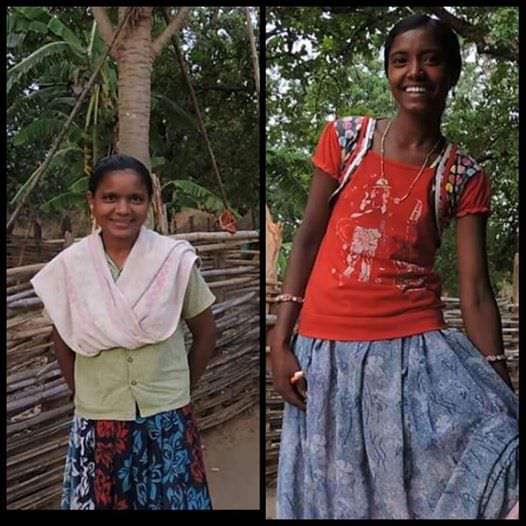
Left: Suneeta Pottam, 19 years. Right: Munni Pottam, 18 years. Image Credit: Sabrang India
Q8. Will there be a return to Bastar?
The environment, as of now, does not seem conducive for our return, fear having been instilled in the minds of anyone who opposes the authorities. Our previous landlord too was harassed before we were finally asked to leave. We need someone who is willing to stand up against the authorities and help us establish our base in Bastar again because only then can we find our way back to the courts. A few local lawyers are handling the cases we had taken up and we are following up with them. Our main focus as of now is the instances of mass sexual violence and the encounters that we are challenging in the High Courts and the Supreme Court. While we work on those, the attempt to return to Bastar and continue working there.
Q9. I’m going to leave the last one to you, anything you would like our readers to know.
I moved to Chattisgarh in 2013 and in these three years, an extremely impressive outcome has been the solidarity of women working in Bastar, be it all the brave local women who are coming out courageously and raising their voices, the women from WSS, or be it Soni Sori, Malini Subramaniam (Scroll), Bela Bhatia, Nandini Sundar, or the interns we have had working with us in the past one and a half years. This solidarity and courage of women is so beautiful, right?
About the author(s)
Graduate from Lady Sri Ram College & Faculty of Law, University of Delhi. Currently working as a Law Researcher at the High Court Of Delhi.
